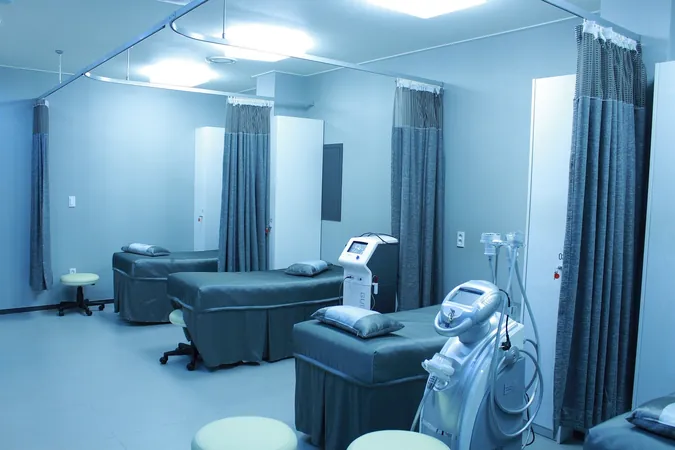
Are You Prepared? Health Care Facilities Gear Up for Possible Bird Flu Outbreak!
2024-12-05
Author: Michael
Are You Prepared? Health Care Facilities Gear Up for Possible Bird Flu Outbreak!
As health experts raise alarms about the potential for a bird flu outbreak, health care facilities across the nation are urged to get ready. A commentary by infectious disease specialists, published in Infection Control & Hospital Epidemiology, lays out vital preparations that hospitals should undertake to safeguard patients, healthcare workers, and the public at large.
Though the immediate risk to humans remains low, the importance of proactive measures cannot be overstated. Hospitals are advised to actively monitor the situation by tracking both local and national bird flu cases, particularly in rural regions where the virus has been reported. Screening patients displaying flu-like symptoms for potential contact with farm animals is essential to curtail any possible spread.
Infectious disease doctors propose that hospitals enhance their readiness through various precautions. These include establishing stringent isolation protocols, ensuring staff have access to adequate protective equipment, planning for the implementation of vaccination sites, and maintaining open lines of communication within healthcare teams and communities alike.
Recent reports indicate a multistate outbreak of the H5N1 strain of bird flu, which was detected in dairy cows in March. A handful of human cases linked to this outbreak have emerged, although these instances have predominantly been mild and associated with direct contact with infected animals. Despite the current low transmission risk to humans, experts caution that a surge in human cases stemming from a new variant could result in significant health challenges, including increased morbidity and mortality rates.
Dr. Lauren Epstein, an infectious disease specialist at the Atlanta Veterans Affairs Medical Center and assistant professor at Emory University School of Medicine, emphasized that "Health care facilities can adopt a systematic approach to prepare to identify, confirm, and manage bird flu safely." She highlights that comprehensive communication is crucial for building trust and reducing anxiety among healthcare personnel and patients. Transparency concerning protocols and potential changes based on new findings is paramount.
In instances where bird flu infection is suspected or confirmed, it’s imperative for hospitals to utilize dedicated single-patient rooms equipped with specialized ventilation systems to minimize the risk of airborne transmission. The Centers for Disease Control and Prevention (CDC) advises healthcare workers to employ high-filtration masks, gowns, gloves, and eye protection when caring for these patients.
As the healthcare sector ramps up its preparedness, it is worth noting the historical context of avian influenza and its potential impacts on public health. With the ever-present possibility that the virus could mutate to facilitate human-to-human transmission, vigilance and readiness in healthcare settings will be essential in combating any potential outbreaks.
Don’t wait for the crisis to hit! Check in on your local healthcare facility’s preparedness plans—your safety could depend on it!









 Brasil (PT)
Brasil (PT)
 Canada (EN)
Canada (EN)
 Chile (ES)
Chile (ES)
 España (ES)
España (ES)
 France (FR)
France (FR)
 Hong Kong (EN)
Hong Kong (EN)
 Italia (IT)
Italia (IT)
 日本 (JA)
日本 (JA)
 Magyarország (HU)
Magyarország (HU)
 Norge (NO)
Norge (NO)
 Polska (PL)
Polska (PL)
 Schweiz (DE)
Schweiz (DE)
 Singapore (EN)
Singapore (EN)
 Sverige (SV)
Sverige (SV)
 Suomi (FI)
Suomi (FI)
 Türkiye (TR)
Türkiye (TR)